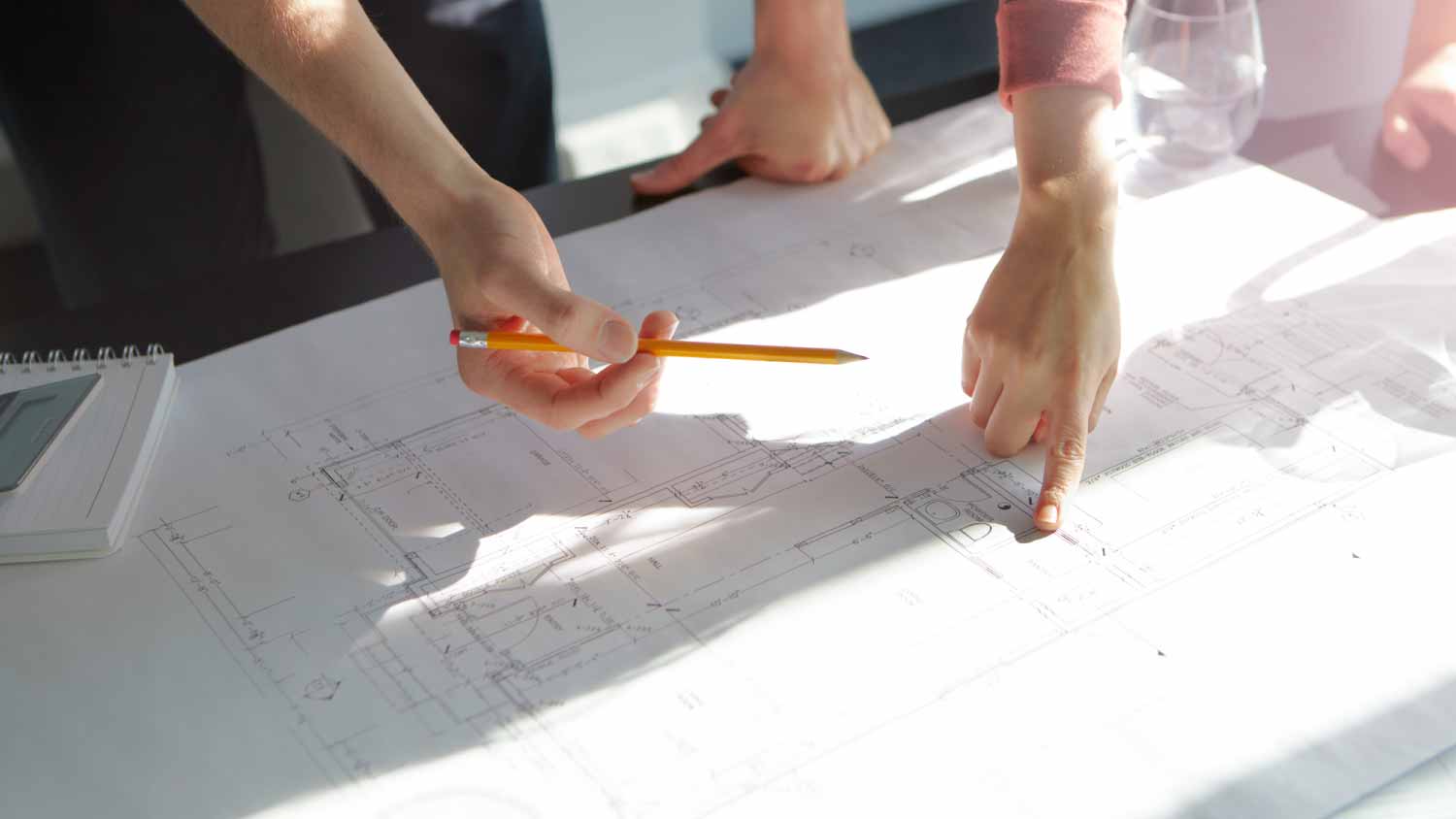
Few things elevate your outdoor space like a landscape architect can. Learn about how much a landscape architect costs and what affects your total.
Architectural service costs depend on your project and location. Check with a local pro for your specific job.
Converting a house to a duplex transforms a single-family home into two independent living units, often unlocking rental income potential.
Key cost factors include structural changes, utility separation, and the need for extra kitchens or bathrooms.
ROI can be substantial, especially in high-demand rental markets or areas with limited housing supply.
Completing a duplex conversion can increase your property’s value, diversify income, and improve long-term flexibility.
It’s essential to consider local zoning, permit requirements, and plan for costs at $100 to $250 per square foot for most projects.
This article was created using automation technology and thoroughly fact-checked and edited by an Angi Editor in accordance with our AI policy.
The cost to convert a house to a duplex ranges from $60,000 to $300,000, with a national average of $150,000. Costs depend on the project’s size, complexity, and location. Most homeowners pay between $100 and $250 per square foot for a full conversion, which includes labor, materials, and finishing work.
For many, this project is important because it can generate rental income, accommodate extended family, or increase resale value. This guide will help you understand every aspect of the cost to convert a house to a duplex and set realistic expectations for your project.
Converting a single-family house into a duplex involves multiple phases, each with its own unique costs. These include design and planning, permitting, demolition, construction, utilities, finishes, and professional labor. Costs rise when adding features like a second kitchen, new entrances, or meeting fire code requirements.
For some, a partial conversion—such as only adding a second kitchen—costs less, while a full conversion with structural changes and complete utility separation is more expensive.
Below is a breakdown of average costs by project phase:
| Project Phase | Description | Average Cost Range |
|---|---|---|
| Design & planning | Architectural plans, engineering, and project scoping | $3,000–$12,000 |
| Permits | Building, zoning, electrical, plumbing | $2,000–$8,000 |
| Demolition | Removing walls, fixtures, and prepping for the new layout | $4,000–$15,000 |
| Framing & structure | Adding walls, entrances, and stairways | $10,000–$40,000 |
| Plumbing | Adding/separating plumbing, new bathrooms/kitchens | $8,000–$30,000 |
| Electrical | Upgrading/separating electrical systems | $7,000–$25,000 |
| HVAC | Installing or separating heating and cooling units | $5,000–$18,000 |
| Finishes | Flooring, paint, cabinetry, fixtures | $10,000–$50,000 |
| Labor | General contractor, trades, project management | $11,000–$40,000 |
The total cost for a standard duplex conversion is $60,000 to $200,000. Costs can be higher for homes with complex layouts or in areas with strict building codes.
The size of your home is a major factor in the cost of converting a house to a duplex. Larger homes require more materials and labor, especially when adding extra bedrooms, bathrooms, or kitchens. The number of new rooms and the complexity of the layout also impact your budget.
| Home Size (Sq. Ft.) | Description | Conversion Cost Range |
|---|---|---|
| 1,000–1,500 | Small home, minimal layout changes | $60,000–$120,000 |
| 1,500–2,500 | Medium home, moderate layout changes | $90,000–$170,000 |
| 2,500–4,000 | Large home, extensive changes, more rooms | $140,000–$200,000+ |
Adding bedrooms, bathrooms, or a second kitchen increases costs. For example, each additional bathroom costs $10,000 to $25,000, while a new kitchen costs $20,000 to $60,000 or more, depending on finishes.
Hiring the right professionals is critical for a safe, code-compliant duplex conversion. Here’s a look at the main pros you’ll need and what they do.
The general contractor oversees your duplex conversion from start to finish. They hire and schedule all subcontractors, manage permits, and handle inspections. Most general contractors charge a percentage of the total project, ranging from 10% to 25%, or a flat fee. For a $120,000 conversion, expect to pay $12,000 to $30,000 for contractor services.
A local architect or designer prepares the required plans for permits and construction. Their drawings ensure your duplex meets safety and zoning requirements. Architect fees are project-based ($3,000 to $12,000) or hourly ($100 to $250), depending on complexity.
A structural engineer is crucial if your conversion involves removing structural walls, adding staircases, or creating new entrances. They ensure your home remains safe and compliant with local codes. Expect to pay $1,000 to $5,000 for evaluations and stamped plans.
Several other specialists may be needed for a successful duplex conversion. Here are common pros, with cost ranges:
Electrician costs: $4,000 to $15,000 to upgrade or separate electrical systems
Plumber costs: $5,000 to $20,000 for new or separated plumbing in kitchens/bathrooms
HVAC specialist: $3,000 to $12,000 to install or separate heating/cooling systems
Permit expeditor: $500 to $2,500 to help navigate local permitting
Inspector: $300 to $800 for pre- and post-conversion inspections
Where you live significantly affects the cost of converting a house to a duplex. Urban areas with high labor costs and strict regulations tend to be more expensive, while rural regions are often less costly. Permit fees, material costs, and the demand for skilled labor also vary by region. Expect to pay more in cities with high housing demand or where building codes are especially strict.
Beyond construction and labor, several other expenses can influence the total cost of converting a house to a duplex. Property taxes often rise after conversion, reflecting the home’s new use and value. Homeowners' insurance premiums may increase, especially if you plan to rent out one or both units.
If you need to meet accessibility standards, such as ADA compliance, expect additional costs for ramps, wider doorways, or accessible bathrooms, often $5,000 to $20,000. Pre-existing repairs, like fixing old wiring or plumbing, can add to your budget. Finally, post-construction cleanup and debris removal cost $500 to $2,500.
Many duplex conversions require demolition of existing walls, old fixtures, or finishes. Removing these elements and preparing the site for new construction costs $4,000 to $15,000, depending on the scope. Disposal fees for old materials and site prep—like leveling floors or reinforcing structures—are included in this phase.
Securing the proper permits is essential and often a complex process. Most conversions need building, electrical, plumbing, and zoning permits. Your contractor often handles permits, but homeowners can apply directly in some areas.
Permit and inspection fees range from $2,000 to $8,000, depending on your city. The process can take several weeks or months, especially if zoning changes or special variances are needed. Be prepared for potential delays if your local codes are strict or require public hearings.
Some homeowners consider a DIY approach to duplex conversion, hoping to save on labor. While you can save 15% to 40% by handling some tasks yourself, there are risks.
DIYers still need to pay for materials, permits, and tool rentals—plus, mistakes or code violations can lead to costly repairs or fines. Most conversions require skills in framing, plumbing, electrical, and finish work, as well as a significant time commitment. Renting or purchasing a tool can add $1,000 to $5,000 to the cost.
DIY is best suited for minor demolition, painting, or non-structural work; major tasks—such as electrical, plumbing, and structural changes—should always be handled by licensed professionals. Overall, DIY conversions are rare and best suited for those with construction experience.
Remodeling and renovating have different scopes and costs. A remodel involves changing the layout—adding kitchens, bathrooms, new entrances, or structural changes—costing $60,000 to $200,000 or more for a duplex conversion, and renovating means updating finishes, fixtures, and surfaces without major changes to the home’s structure, which can cost $20,000 to $60,000.
A complete remodel is necessary if you need to create separate living spaces, add kitchens, or modify the floor plan. If your home already has a suitable layout, a renovation—such as new flooring, paint, or fixtures—may be sufficient. Remodeling takes longer, requires more permits, and costs more, but it’s often essential for a legal duplex.
Here are a few ways to keep project costs within budget when converting your house to a duplex:
Plan ahead and get multiple quotes: Start with a detailed plan and gather at least three bids from reputable contractors to ensure competitive pricing.
Reuse existing structures and materials: Salvage walls, doors, and fixtures wherever possible to reduce material and labor costs.
Limit customization: Stick to standard layouts and finishes to keep expenses in check and avoid costly custom work.
Handle some tasks yourself: Take on simple jobs like demolition, painting, or cleanup to save on labor, but leave complex work to the pros.
Schedule work during off-peak seasons: Book your project outside of busy construction periods for potential savings and better contractor availability.
Converting to a duplex can significantly increase your property’s value and unlock steady rental income. In many markets, a well-executed duplex conversion delivers a strong return on investment—often 15% to 30% or higher—especially in areas with high rental demand. The exact ROI depends on location, quality of work, and local real estate trends.
A duplex appeals to both investors and owner-occupants, making it easier to resell. Compared to other remodels, such as adding an accessory dwelling unit (ADU) or finishing a basement, duplex conversions often deliver higher long-term value and income potential.
Home is the most important place on earth, which is why Angi has helped more than 150 million homeowners transform their houses into homes they adore. To help homeowners with their next project, Angi provides readers with the most accurate cost data and upholds strict editorial standards. We extensively research project costs to develop the pricing data you see, so you can make the best decisions for you and your home. We rely on reputable sources, including the U.S. Bureau of Labor Statistics, academic journals, market studies, and interviews with industry experts—all to ensure our prices reflect real-world projects.
Want to help us improve our cost data? Send us a recent project quote to [email protected]. Quotes and personal information will not be shared publicly.
From average costs to expert advice, get all the answers you need to get your job done.

Few things elevate your outdoor space like a landscape architect can. Learn about how much a landscape architect costs and what affects your total.

Get transparent draftsperson cost to hire info, including average prices, cost factors, and tips to help homeowners budget and save on drafting services.

Need to know how much blueprints cost for your new construction project? Use this comprehensive cost guide to get an accurate estimate for your build.

It’s uncommon for people to have their home’s blueprints sitting in a drawer, but you might need them. If you do, here’s how to get blueprints of your house.

Looking for a home style that’s both classic and unique? Learn all about Victorian-style architecture and design and what defines this type of home.

A split floor plan offers privacy and creates a centralized common living area in your home. Learn if it’s the right choice for your home.